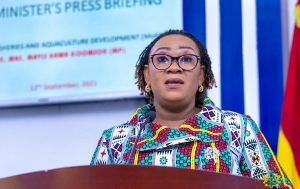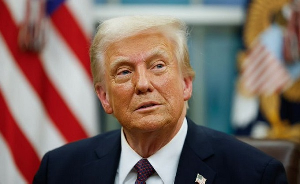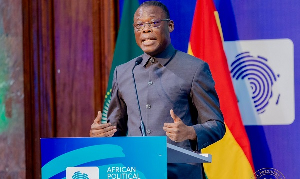Vodafone Ghana CEO, Kyle Whitehill has said the rate at which Ghana’s telecom industry was growing, it was not likely there would be consolidations as he had previously predicted.
Kyle Whitehill had always maintained that Ghana’s mobile market was near saturation and it was not a good idea licensing a sixth mobile operator because that would compel some operators to either fizzle out, like what happened in India, or merge with others to survive.
But in an exclusive interview with Adom News Editor, Nii Narku Dowuona, he said “I am less convinced now than I was 12 to 15 months ago about consolidation because the market is growing faster than we all anticipated so maybe I am more optimistic about the industry than I was then and I believe each player may want to stay in the market for a little bit longer,” he said.
He said he also expected that the industry would continue to grow even faster in the foreseeable future.
Kyle Whitehill noted that Ghana’s telecom market was over 80% mobile voice and over the next 12 months it would stay heavily dependent on mobile voice but data traffic would double this year.
“The size of the market is going to double this year and that is definitely going to be sustained in the foreseeable future,” he said.
But Kyle Whitehill still maintained a sixth operator, Glo, was not necessarily a good idea, saying in most markets around the world, excluding India, there were two to three operators and experience had shown each operator eventually needed at least 25% market share to survive and be profitable.
He argued that when a sixth operator is allowed into a market that already had five operators, it dilutes the market share structure, and revenue of existing operators and made it particularly difficult for the relatively smaller operators to make money and survive.
“Besides if you come into a market like Ghana that already has five multinational players how are you going to make money as a sixth operator,” Whitehill asked.
Mr. Whitehill noted that India was an example of where all the new entrants were getting out of the market because invariably it was not easy to make money ‘just like that.’
He however noted that for Vodafone, “the coming of the sixth operator only makes us ask ourselves what is it that Ghanaians are looking for that we are not providing that Glo may provide. We know people want quality of service and value for money so the sixth operator will only make us up our game and do better.”
“I already have four great competitors so an additional great competitor just means that I would have to work harder this year. But it is not an industry for the faint hearted because of the quality of the competition.” RISING OPEX VS DWINDLING REVENUE MARGINS Some industry operators have asserted that the industry would eventually cave in under the pressure of consistently rising operational expenditure (OPEX) in the face reducing tariffs and its resultant dwindling revenue margins; but Kyle Whitehill said that assertion was rather dramatic.
He explained that once the industry was growing, there was no question about revenue growth, but the concern was mainly unpredictably costs as reflected in fast growing electricity tariffs, diesel cost, levies on installation of infrastructure, and inflation wavering between eight and nine per cent per annum.
“When you look at the longer-term horizon you can tell that my cost is going to double in the next three to five years but my revenue is not going to double in the next three to five years,” he said.
Kyle Whitehill said the situation compelled industry players to either cut down on cost and investments or alternative, seek for reduction in fees, levies and charges by local authorities, based on the argument that telcos were some of the highest taxpayers and they brought value to the economy.
He said almost every day, Vodafone, like some of the other telcos, was faced with one local authority or the other closing down its stores, kidnapping its staff, or doing something to get money from Vodafone, but all the telcos were asking for was for the government to appreciate their value that telcos brought to the economy and to be fair to them on that account.
Vodafone is the second largest operator in Ghana with a subscriber base of 4.36 million representing some 20.4% market share. The company swept an unprecedented six awards, at the recently held Second MobileWorld Ghana Telecom Awards.
Business News of Monday, 7 May 2012
Source: Samuel Nii Narku Dowuona












